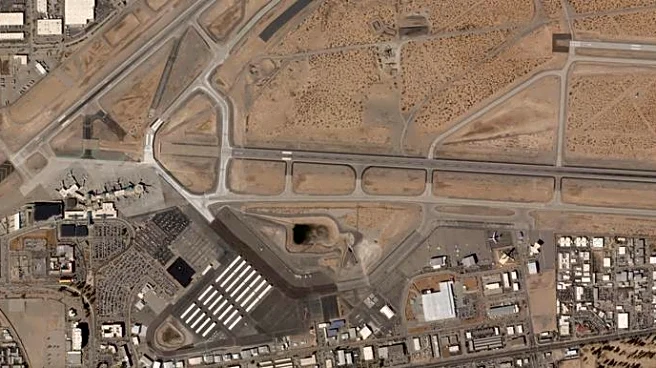What's Happening?
A second U.S. appeals court has rejected President Trump's executive order aimed at curtailing birthright citizenship. The order, issued on January 20, mandates that U.S.-born children must have at least one parent who is an American citizen or a lawful permanent resident to be recognized as citizens. This directive challenges the longstanding principle of birthright citizenship enshrined in the 14th Amendment, which has been a cornerstone of U.S. citizenship law for over 150 years. The 1st Circuit Court of Appeals upheld a nationwide injunction against the order, following a similar decision by the 9th Circuit Court in July. The administration has appealed to the U.S. Supreme Court, seeking to overturn these rulings.
Why It's Important?
The rejection of President Trump's order by multiple courts underscores the contentious nature of immigration policy in the United States. Birthright citizenship is a fundamental aspect of American identity and legal structure, and any changes to this principle could have significant implications for millions of individuals born in the U.S. to non-citizen parents. The legal battles reflect broader debates over immigration and citizenship, impacting social services and state policies. The administration's push for the Supreme Court to review the case highlights the ongoing struggle between executive actions and judicial oversight in shaping immigration policy.
What's Next?
The Supreme Court's decision to hear the appeal could set a precedent for future executive actions on immigration. If the court agrees to review the case, it will be the second time the litigation reaches the high court, following a previous ruling that limited judges' power to block Trump's policies nationwide. The outcome could lead to a patchwork system of citizenship rules, creating uncertainty for immigrants and states. Meanwhile, lower courts continue to block the order's implementation, maintaining the status quo until a definitive legal resolution is reached.
Beyond the Headlines
The legal challenges to President Trump's order highlight the complex interplay between federal authority and state rights in immigration policy. The potential for a patchwork citizenship system raises ethical and logistical concerns, as states may struggle to administer social services under varying rules. This situation could exacerbate existing tensions over immigration and citizenship, influencing public discourse and policy decisions at both state and national levels.










